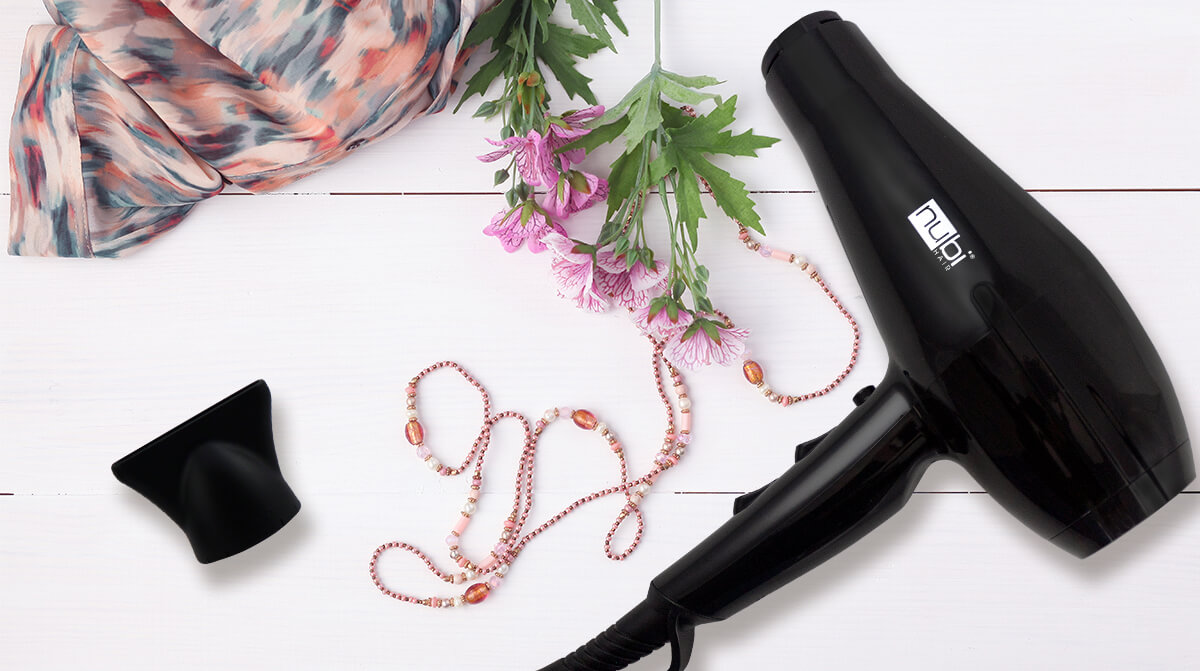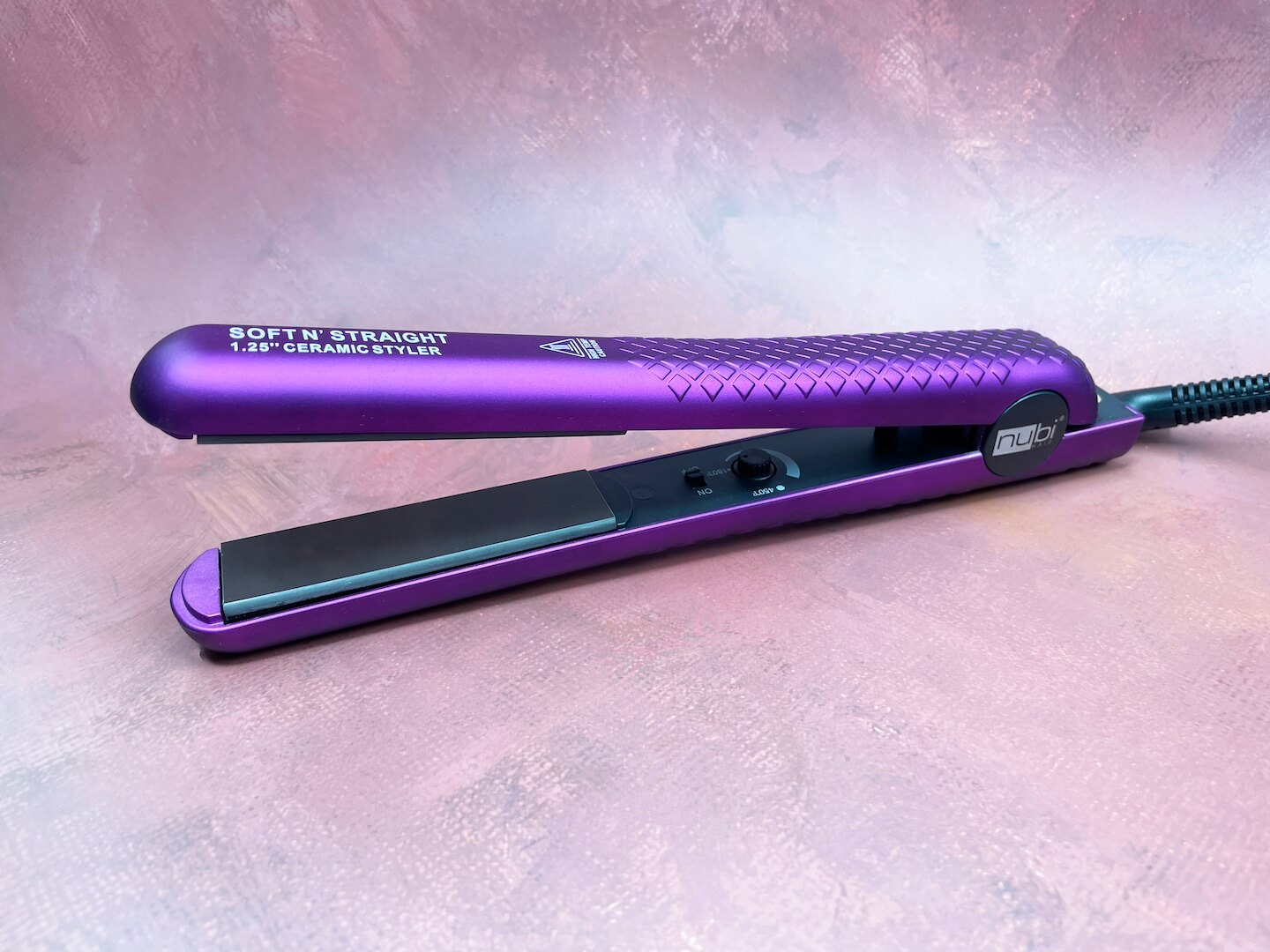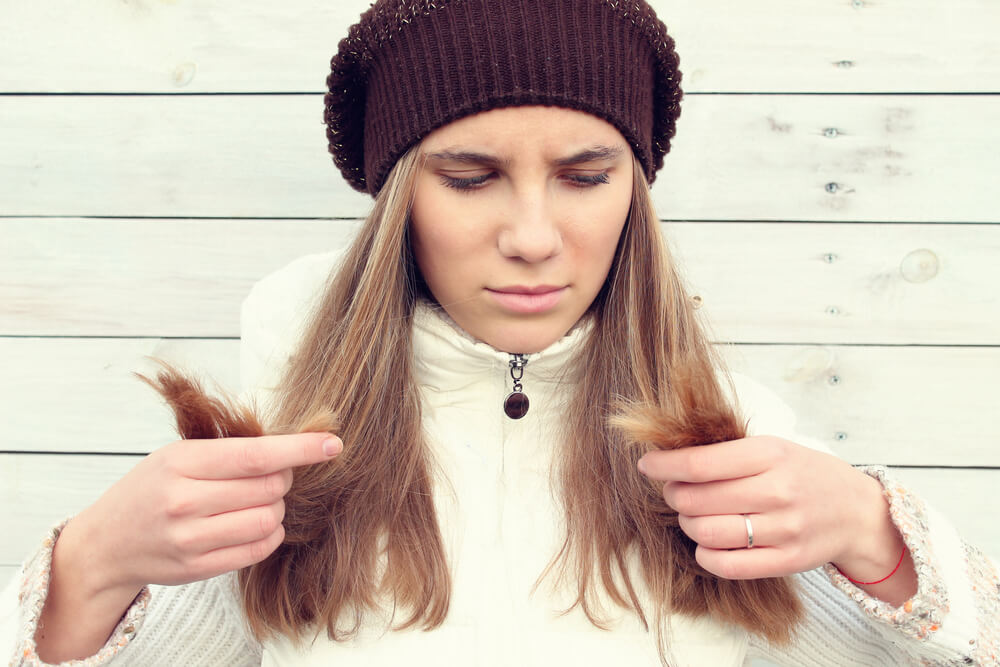Hair Care
Winter Hair Care: How to Tackle Dryness and Damage
Does your hair often look dry and damaged in the winter months? You’re not alone. This common problem can be attributed to a variety of winter-related factors, from the dry air that your hair is constantly subjected to to the impact of harsh weather conditions. Either way, it’s not a good look but, on the plus side, there’s plenty that you can do about this.
If you’re ready to transform the look of your mane and start rocking locks that feel vibrantly healthy and bouncy, read on as Nubi shares some top tips for keeping the appearance of winter dryness and damage away.
Cut Back on How Often You Shampoo Your Hair
One of the reasons why hair becomes so dry and prone to damage in the winter is that the scalp doesn’t produce as much sebum as it does in the warmer months. The cold weather slows sebum production down. Since sebum is responsible for keeping your strands lubricated and conditioned, a lack of it can quickly lead to dryness.
This means that one of your winter hair care priorities should be to preserve your scalp’s sebum as much as possible. The most effective way to do this is to cut back on how often you shampoo your hair. Each time you use a shampoo, it will remove the sebum from your scalp, preventing that oil from working its way down your strands. While keeping your hair and scalp clean is still crucial, dial back your shampooing frequency and your hair should start to look much healthier.
Use a Gentle Shampoo
In addition to ensuring that you don’t shampoo your hair too often in the winter, it’s also important to pay close attention to the shampoo that you’re using. Even if you cut back on how often you use it, you still won’t be doing your hair any favors if your shampoo contains harsh surfactants that strip your strands dry.
To counter this, make sure that your winter shampoo is a gentle and moisturizing one. Avoid hair care formulas that are laden with sulfates and other drying ingredients. Instead, opt for shampoos that are filled with moisturizing plant oils and plenty of antioxidants.
Pick a Rich and Moisturizing Conditioner
While a conditioner should be used year-round after shampooing, your choice of conditioner should change once the winter weather arrives. At this time of year, your hair needs as much moisture as you can provide, making a rich conditioner essential.
Although a conditioner usually sits in your hair for a few minutes, dry and damaged hair can sometimes benefit from some extra conditioning in the winter. This is where leave-in conditioners can be a godsend. They’re applied after you step out of the shower – once your regular conditioner has been rinsed away. They leave the hair feeling even more protected while the hydration that they provide tends to last for days.
Fully Dry Your Hair Before Going Outdoors

While going outdoors with wet hair isn’t usually a good idea at any time of year, it becomes downright dangerous in the winter. Why? Firstly, because wet hair is extremely vulnerable. In fact, your hair is at its most fragile when it’s wet. Exposing it in this state to those cold temperatures and bitter winds will only make that dryness and damage even worse.
If the temperatures outside are close to freezing, then your hair will be dealt an even harsher blow. It won’t be long before the excess moisture in your wet hair starts to freeze too. This then leaves your strands very brittle and susceptible to snapping.
This is where it can really pay to invest in a high-quality blow dryer, such as the Nubi Blow Me Away dryer. This professional-grade model has a powerful motor and an easily focused nozzle, giving you fast results and a glossy, salon-quality finish each and every time. It’s a must in every hair care routine!
Be Very Careful When Heat Styling

While using a blow dryer can sometimes be unavoidable in the winter months, you need to be cautious when it comes to other forms of heat styling. If your hair is already dry and damaged, an incorrect heat styling approach will only exacerbate those issues.
As a first step of protection, always apply a heat protectant. Ideally, this should be used while your hair is still damp. This will help to shield your strands from the damage that heat can cause.
Be wise when picking your heated styling tools too. Rather than opting for tools that only offer one heat setting, go for models that put you in control of temperature, like the Nubi Soft N’ Straight Ceramic Purple Styler. With a range of 180º-450ºF, you’ll be able to pick a temperature that’s capable of styling your strands without burning them.
Cool Your Showers Down
You’re probably aware of how hot water can be so damaging to your skin, especially in the winter. However, did you know that it can have the same effect on your hair too?
Hot water melts sebum – the oil that you’re trying to preserve in the winter since it conditions your strands. Allowing your hair to come into contact with hot water will leave it drier at any time of year. However, in the winter, it takes much longer for your strands to recover as your scalp won’t be producing enough sebum to make up for what has been lost.
So, although a hot shower may feel needed at the end of a cold winter’s day, keep the temperature lukewarm. Not only will this benefit your hair but your skin will thank you for it too!
Keep Your Hair Covered When Outside
Between the harsh winds roughing up your hair cuticles and the rain exacerbating frizz, the winter weather isn’t kind to your hair. If you live somewhere with relatively mild winters, this won’t be such an issue. However, if the winter weather can get quite extreme where you are, you may want to consider covering your hair up whenever you go outside.
How? Hats are a great way to do this. Try twisting your locks into a low bun and then topping your head with a hat. Scarves work well too – wrap one around your head and hair for an extra barrier against the environment.
If you’re not a fan of those accessories, protective hairstyles would be your next best option. Rather than leaving your hair loose so that each and every strand takes a battering from the weather, experiment with braids and buns that reduce the surface area of hair that’s exposed to the environment.
Be Gentle With Your Hair at Night
As we mentioned, your hair is particularly vulnerable to damage in the winter. You may think that your locks are safe while you’re asleep since the winter weather can’t harm your hair in bed but this isn’t strictly true. Sure, your hair won’t need to worry about the weather but your pillowcase could be making that damage and dryness worse.
How? If your pillowcase is made from cotton or a similar-feeling fabric, each time your hair rubs against it at night, friction will be created. This friction damages your locks, leaving your hair weaker. Cotton and other similar materials also absorb moisture from the hair, resulting in dryness.
What should you use instead? Silk or satin. Both materials have a much smoother finish that allows hair to glide easily over. This reduces friction, keeping your hair safe while also preventing frizz. The fact that a silk or satin pillowcase will also enable your locks to better retain moisture is an added bonus!
Boost Your Hair From Within
There’s no denying that using the right topical hair care products is important in the winter. However, let’s not forget the phrase ‘you are what you eat’. It applies to your hair too, meaning that the foods you eat in the winter will have a huge impact on how healthy your hair looks and feels. With winter coinciding with the holidays, along with all of those unhealthy festive feasts, it’s no surprise that the hair can really take a beating!
So, what should you be eating if you want your hair to look its very best?
Your diet should be filled with foods that are high in protein, vitamins, and minerals. Some of the best foods for providing hair-loving nutrients are:
- Oily fish, like salmon and mackerel
- Lean proteins, like turkey and lean red meat
- Leafy greens
- Eggs
- Nuts and seeds
- Citrus fruits and berries
Overall, your diet should be as fresh and well-balanced as possible. It won’t just be your hair that benefits from this – your entire body will reap the rewards!
Learn How to De-Stress
The winter months can often be stressful, and it’s no secret that stress can have severely negative consequences on a person’s physical and mental health. You’re probably aware of how your skin can suffer from times of stress too, but did you know that your hair goes through the same?
Stress causes a disruption to the body’s hair growth cycle. Those hairs on your head that were previously actively growing can end up prematurely entering the shedding stage of the cycle. This can leave your hair looking thinner, drier, and more fragile.
While putting a complete stop to the stressors in your life would be an unrealistic aim, it’s definitely possible to learn how to de-stress. This will help to prevent your stress levels from soaring to unmanageable amounts, which, in turn, will help your hair. There are plenty of science-backed stress-relieving techniques out there that you can try, so give some of these a go!
Winter Hair Care With Nubi
While hair care can be tricky in the winter months, the tips above should help to ensure that you’re giving your hair the very best. Sure, your strands may require some extra TLC at this harsh time of year but your efforts will be rewarded once you see how much healthier your locks look and feel.
Click here to boost your winter hair care routine with more bestselling products from Nubi.



